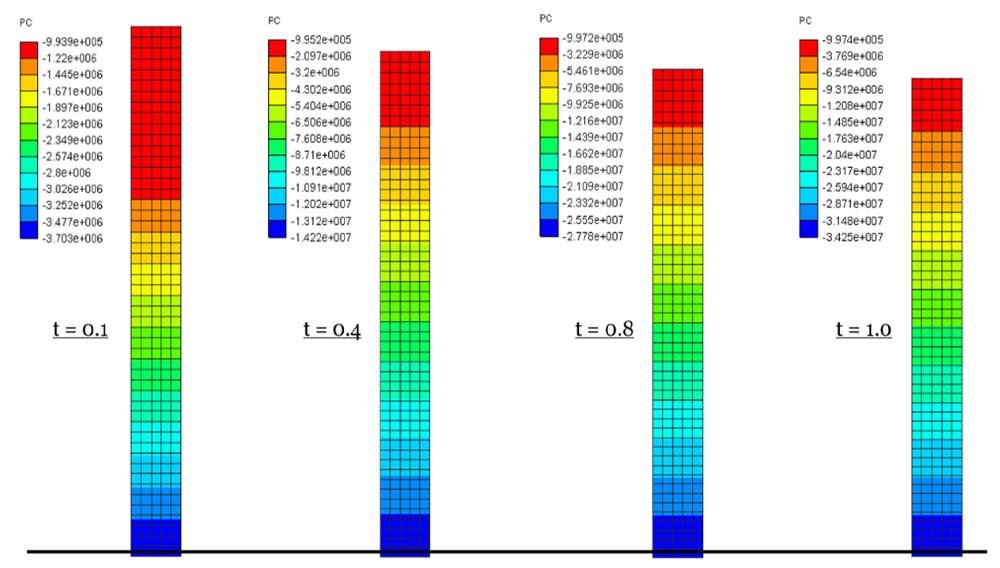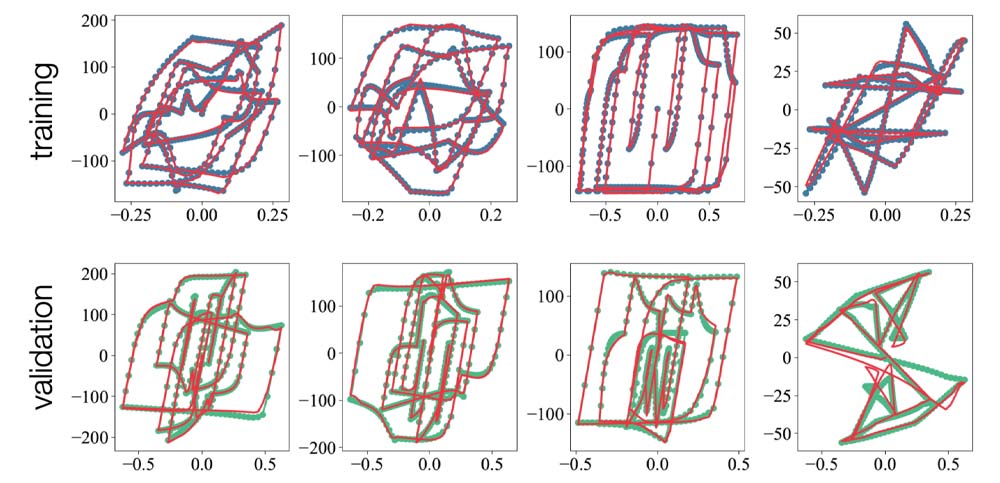Group Overview
The constitutive model or material model, which renders the local stress in response to the local strain or strain history, is fundamental to any application of solid mechanics. In the context of computational structural finite element analysis, which is today indispensable tool in the engineering industry, the constitutive model is represented in terms of the local stress update algorithm.
While suitable models for a range of different material behaviours have been available for some time, the recent progress in Materials Engineering and the trend towards innovative, more efficient, more accurate and more complex industrial and scientific applications require continuous research and development efforts in the area of constitutive modelling.







